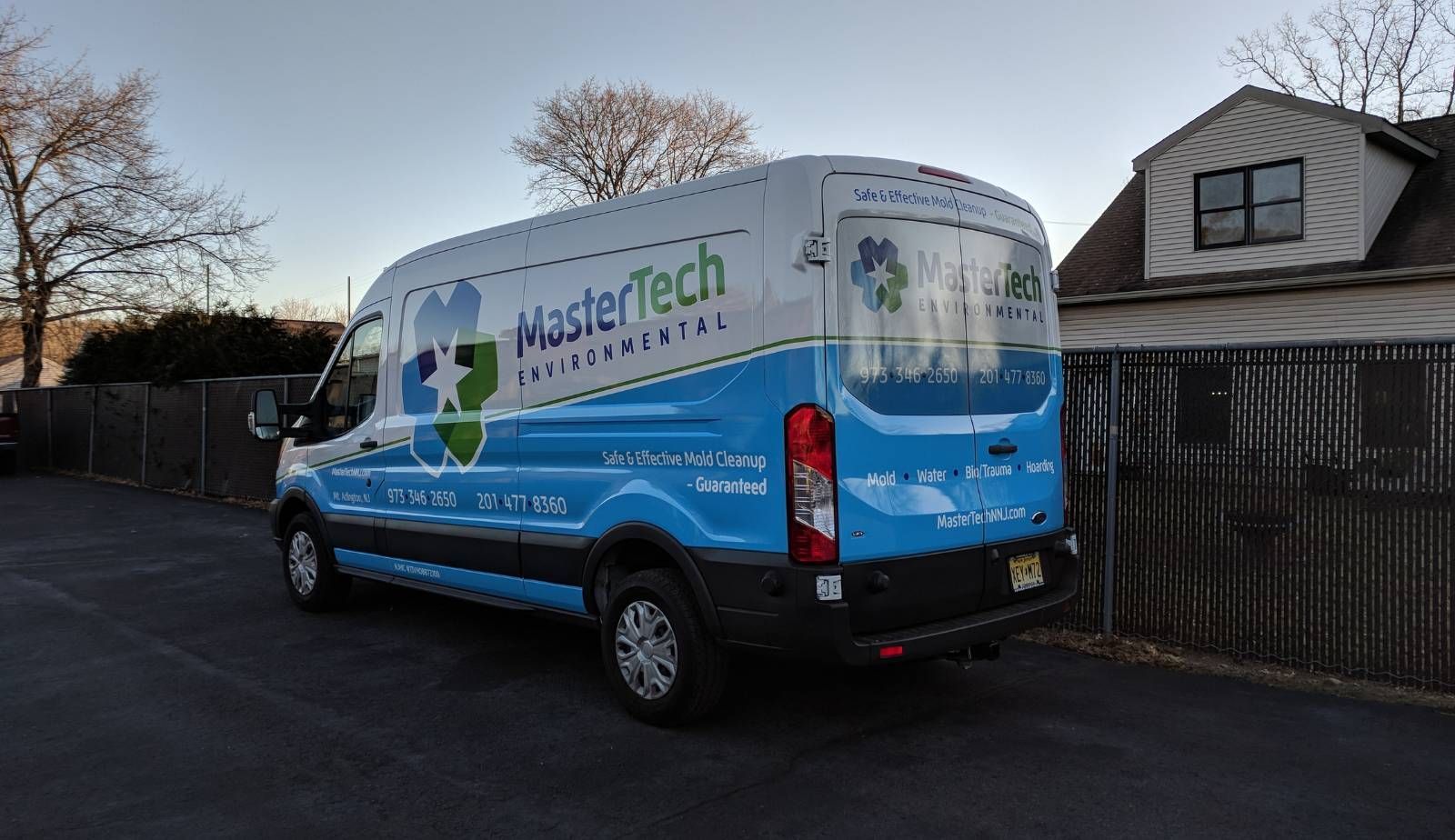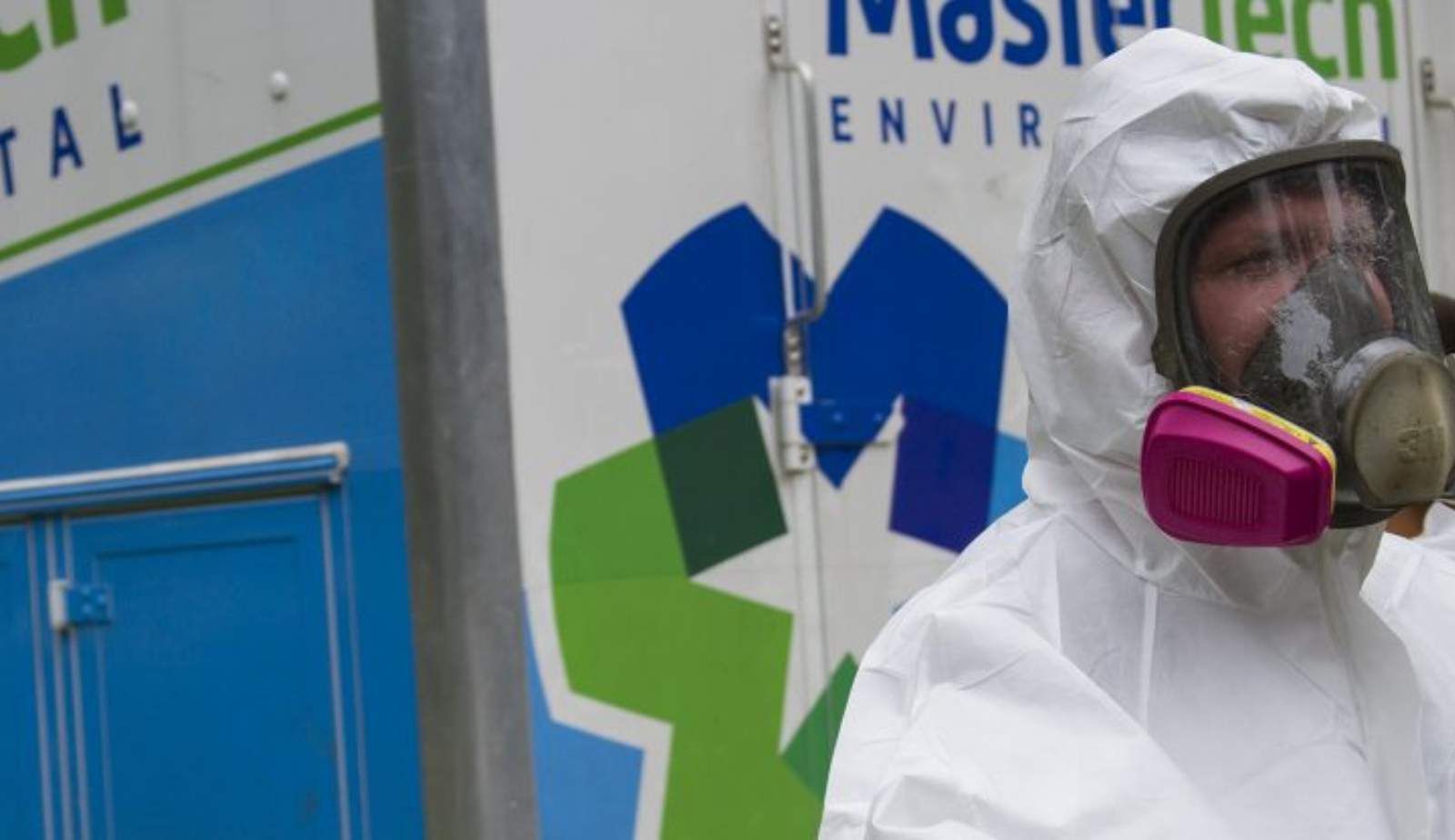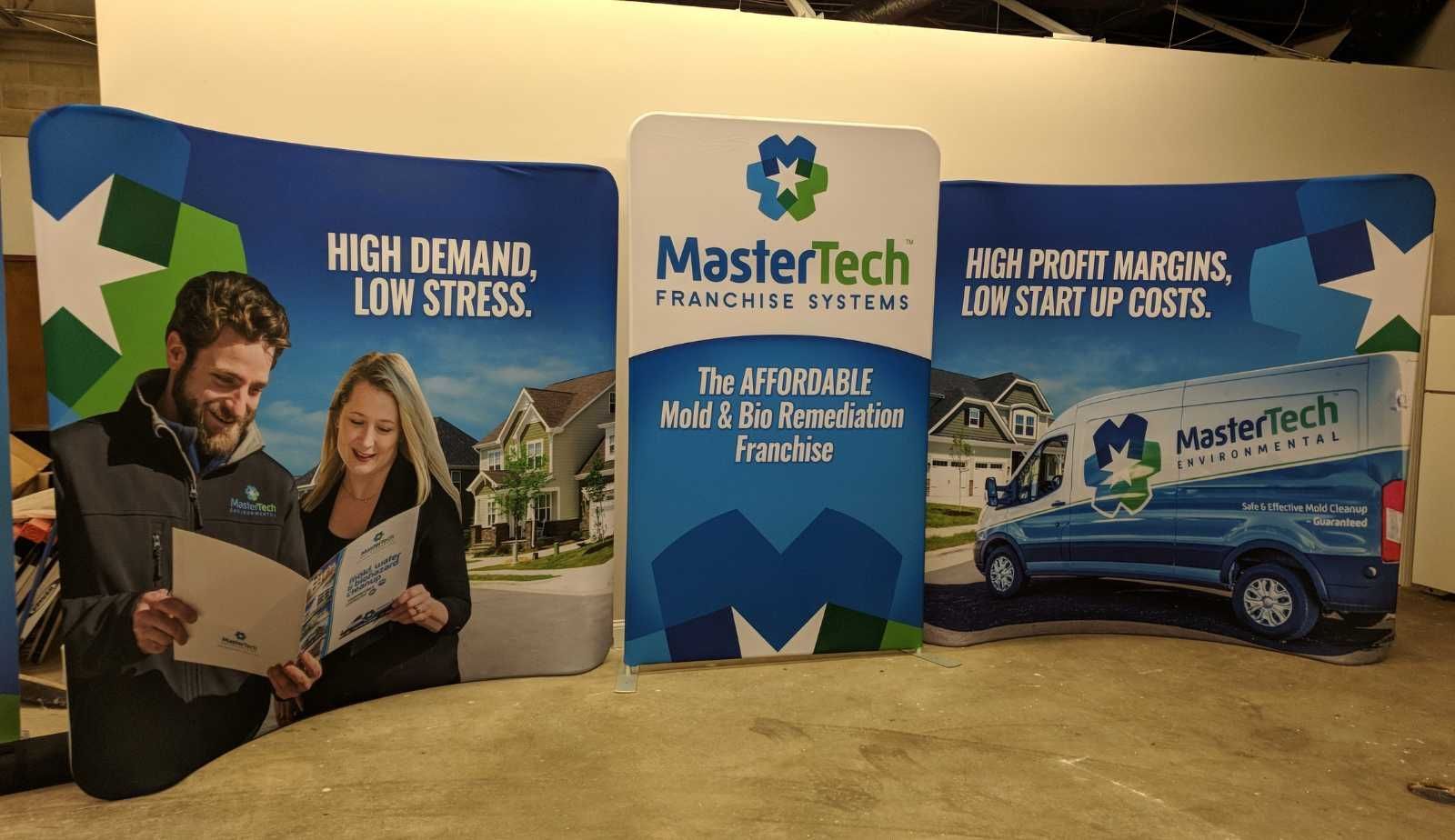
Choosing a franchise in the environmental services industry is an astute decision for entrepreneurs looking for growth and stability.
The industry has shown promising development with segments like mold remediation, water and fire damage restoration gaining traction. Data indicates that revenues in these service areas are projected to increase steadily, offering a pathway to sustained profitability.
Environmental services, particularly in the niches of mold remediation and water damage restoration, are expected to see growth due to rising concerns about climate change and natural disasters. According to a report, the U.S. environmental services market is projected to experience slow but steady growth with compound annual growth rates ranging between 0.6% and 1.5% until 2028. This steady rise underscores the enduring necessity and demand for these services.
Investing in a franchise within this sector not only promises financial rewards but also makes a significant community impact. By providing essential services that safeguard public health and property, franchisees play a vital role in enhancing community resilience against environmental hazards. The positive outlook for the environmental services industry, fueled by both legislative support and private sector growth, ensures that this market remains a promising choice for long-term investment.
Overview of the Environmental Services Industry
The environmental services industry plays a critical role in maintaining public health and preserving natural resources. Key areas include mold remediation, water and fire damage restoration, driven by both increasing regulatory standards and growing environmental awareness.
Significance of Environmental Services
Environmental services are vital for public health and safety. The industry assists in pollution control, waste management, and resource conservation. Companies operating in this sector help to mitigate environmental hazards and ensure compliance with regulations set by agencies such as the U.S. Environmental Protection Agency (EPA).
The EPA regulations have driven demand for services like hazardous waste treatment, air purification, and site remediation. This compliance is essential for safeguarding ecosystems and human health.
Environmental Business International reports that the industry continues to expand, reflecting a robust market for services that protect the environment and improve quality of life.
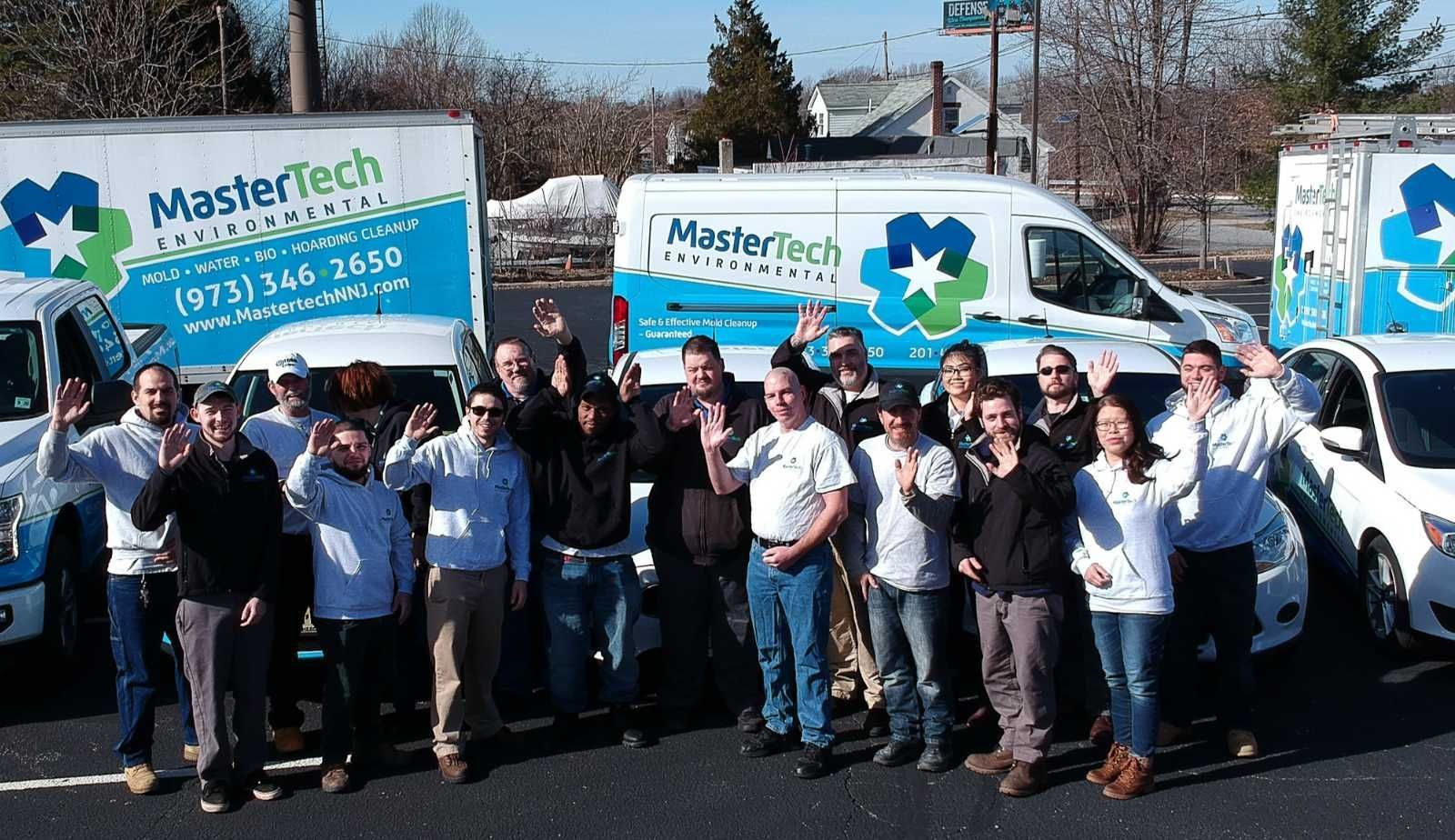
Major Market Segments
The industry encompasses diverse segments including remediation services, waste management, and environmental consulting. Mold remediation addresses indoor air quality issues, crucial for preventing health problems like asthma and allergies. On the other hand, water and fire damage restoration services are critical for recovery from natural disasters and accidents, helping communities rebound quickly.
Industry segmentation shows that equipment and resource allocation are significant parts of the market, reflecting trends and growth highlighted by the EBI Report.
Industry consolidation is noteworthy, with a trend towards merging smaller companies into larger entities to leverage economies of scale. This consolidation offers opportunities for increased market share through strategic acquisitions, as indicated by market trends. The shift encourages efficiency and enhances service offerings, meeting the ever-growing demand for environmental services.
Advantages of Choosing a Franchise Model
Choosing a franchise in the environmental services industry offers access to a growing market and robust support mechanisms. Franchisees can benefit from established systems and shared resources, reducing the risk commonly associated with new business ventures.
Franchise Growth in Environmental Services
The environmental services industry, encompassing mold remediation, water and fire damage restoration, is witnessing substantial growth. Factors driving this include increased awareness of environmental issues and stricter regulations. The demand for these services ensures a stable market.
Franchisors in this sector provide established business models, making it easier for franchisees to enter the market. Multi-unit franchising, for instance, allows owning multiple locations, enhancing scalability and revenue potential. As a result, investors can leverage economies of scale and share resources across multiple franchise units.
Support and Resources for Franchisees
Franchisees benefit significantly from the support and resources offered by franchisors. Comprehensive training programs ensure that franchisees understand operational procedures and best practices. Ongoing support in marketing, technology, and management helps franchisees run their businesses efficiently.
Franchisors often offer centralized services such as bulk purchasing, which can reduce costs for franchisees. Access to a network of other franchisees also provides a platform for sharing experiences and solutions to common challenges. This collaborative environment aids in maintaining high service standards and drives business growth.
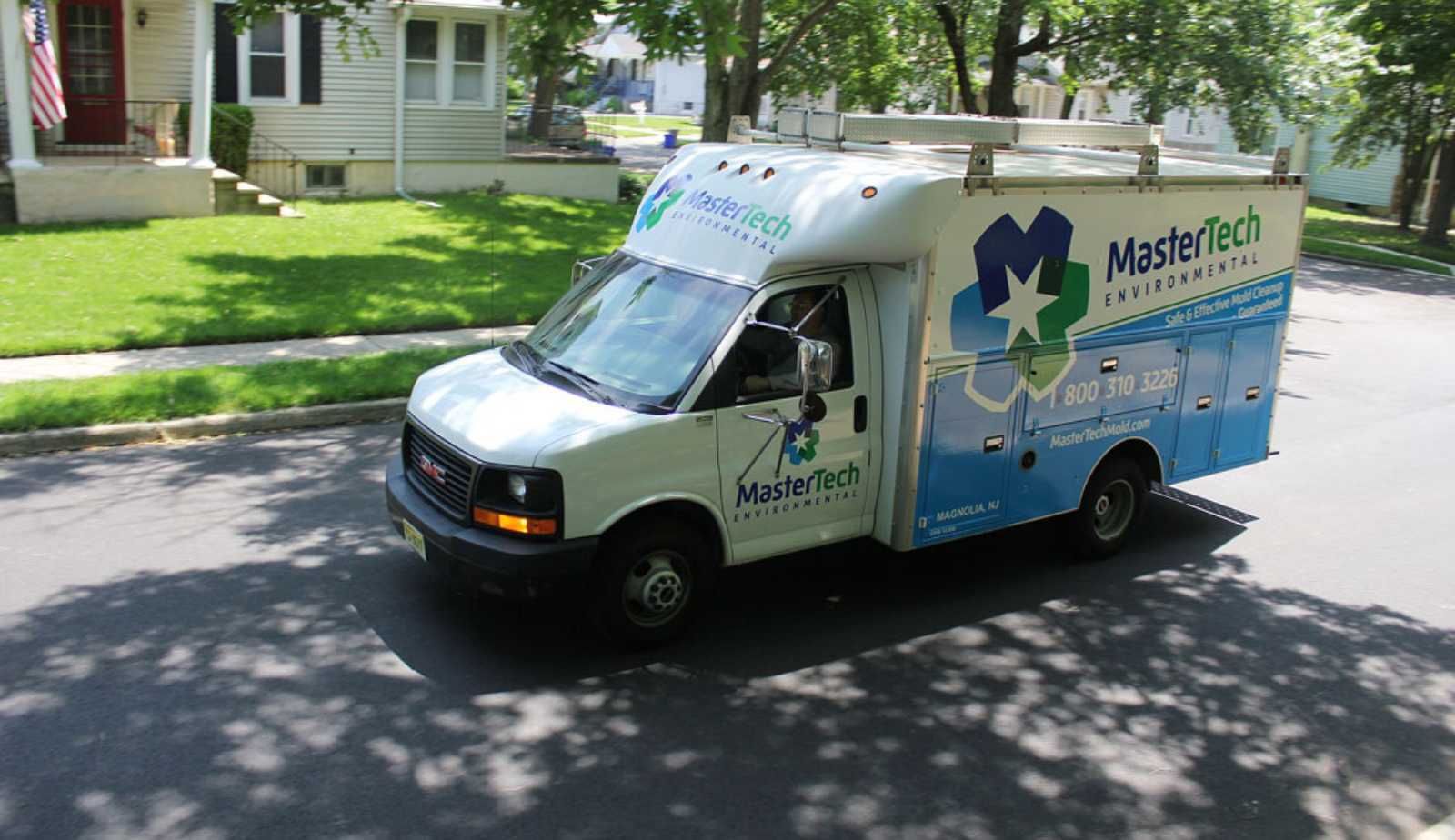
Key Drivers of Industry Growth and Stability
The environmental services industry, especially sectors like mold remediation and water and fire damage restoration, is influenced by several critical drivers that assure its growth and stability. These drivers are primarily technological advancements, legislative and regulatory frameworks, and economic growth and infrastructure investment.
Legislation and Regulatory Framework
Strict environmental regulations drive the demand for specialized services. The Infrastructure Investment and Jobs Act promotes sustainable practices, making compliance crucial for businesses. This legislation ensures that companies stay updated with industry standards, particularly in areas like mold remediation.
Key Legislation:
- Clean Water Act
- Infrastructure Investment and Jobs Act
Meeting these regulatory requirements not only protects businesses from legal issues but also builds trust with customers, enhancing industry credibility.
Economic Growth and Infrastructure
Economic growth fuels demand for environmental services. As communities expand, the need for mold remediation and damage restoration increases. Infrastructure investments, such as those mandated by the Infrastructure Investment and Jobs Act, further boost this demand.
Economic Factors:
- Community Expansion: New constructions require environmental assessments.
- Infrastructure Investment: Increased demand for restoration services after natural disasters.
These economic drivers ensure consistent growth and create job opportunities, which contribute to the industry's long-term stability and profitability.

Critical Services Within the Environmental Sector
The environmental services industry comprises vital functions that ensure the safety, health, and sustainability of communities. Key areas within this sector include mold remediation and water and fire damage restoration.
Mold Remediation and Indoor Air Quality
Mold remediation plays a crucial role in maintaining indoor air quality. Mold spores can lead to serious health issues, including respiratory problems and allergic reactions.
Professionals in this field use specialized equipment to detect mold and eradicate it effectively. Moisture control is essential to prevent mold regrowth.
Mold remediation services often involve removing contaminated materials and treating areas with antifungal agents. This ensures that the environment is safe for inhabitants. Given the increasing awareness of indoor air quality's impact on health, the demand for mold remediation services continues to grow.
Water and Fire Damage Restoration
Water and fire damage restoration services address the aftermath of disasters in residential and commercial properties. Water damage can lead to structural issues and mold growth if not addressed promptly. Fire damage can impair air quality due to soot and smoke residues.
Restoration services typically involve water extraction, drying, and dehumidification for water damage. Smoke and soot cleanup are crucial components of fire damage restoration.
Professionals also perform structural repairs and ensure the property is safe for occupancy. The rising incidence of natural disasters increases the need for these services, making them a stable investment within the environmental sector.
The environmental services industry’s impact on public health and safety underscores its critical role in society, making it an appealing choice for franchise opportunities.
Market Trends and Data Analysis
The environmental services industry is witnessing a significant period of growth driven by technological advancements, evolving regulations, and increasing environmental awareness. This section will provide crucial data and trends that underline the market’s robustness and potential for long-term profitability.
Emerging Trends in Environmental Services
Key trends in the environmental services sector include increased adoption of advanced technologies and methods for mold remediation, water, and fire damage restoration.
Technologies like eco-friendly cleaning agents are gaining traction. The focus on sustainable practices has led to the rise in demand for green services. Agencies project consistent growth rates across various segments.
For instance, the U.S. environmental services market is expected to see steady growth, with a Compound Annual Growth Rate (CAGR) between 0.6% and 1.5% from 2024 to 2028, driven by various factors including governmental policies and consumer preference shifts.
Data-Driven Insights on Market Condition
Revenues in the environmental services industry have been rising, showing promise for new franchises in mold remediation and restoration services.
Data from Environmental Business International indicates that the market remains strong with notable increases in service demand. Key segments, particularly those involving mold, water, and fire damage, exhibit stable growth due to recurrent environmental challenges and regulatory frameworks.
The industry also benefits from quantification metrics, with comprehensive reports detailing market breakdowns and projections. Notably, markets for remediation services show resilience, supported by data which highlights steady revenue inflow and a diversified client base. This points to excellent opportunities for franchisees aiming to capitalize on an industry poised for sustainable progress.
Challenges and Opportunities for Franchisees
In the environmental services industry, franchisees encounter both significant challenges and unique opportunities. Understanding how to navigate economic and regulatory changes, and identifying niches and technological innovations are crucial for success.
Navigating Economic and Regulatory Changes
Franchisees in the environmental services industry often face evolving economic conditions and stringent regulatory requirements. Economic fluctuations can impact demand for services like mold remediation and water damage restoration. However, economic growth trends in the industry indicate steady demand due to increasing awareness of environmental hazards and the necessity for timely intervention in disaster scenarios.
Regulations related to environmental safety and health standards are continuously updated, requiring franchises to stay compliant. These businesses must invest in training and certification to adhere to environmental laws, which can increase operational costs. Staying informed about these changes helps franchises avoid legal liabilities and ensures the safety and efficacy of their services.
Exploiting Niches and Technological Innovations
Identifying niche markets and adopting technological advancements presents a vast opportunity for franchisees in this sector. Specialized services, such as mold remediation and fire damage restoration, cater to specific client needs, leading to potential long-term profitability. Understanding community-specific demands can give franchises a competitive edge.
Technological innovations, such as eco-friendly cleaning agents and advanced diagnostic tools, enhance service efficiency and environmental impact.
Industry Leaders and Competitive Landscape
The environmental services industry has numerous key players and market leaders, each contributing significantly to its growth and stability. Additionally, strategic mergers and acquisitions (M&A) continually shape the competitive landscape.
Future Outlook of Environmental Services Franchises
The environmental services industry is poised for significant growth. With increasing awareness about environmental issues, services like mold remediation, water and fire damage restoration are in high demand. This trend is expected to continue, driven by stricter regulations and public consciousness.
- Growth Prospects: The demand for eco-friendly services is rising, reflecting consumer trends towards environmental responsibility. This creates opportunities for franchises to capitalize on a booming market.
- Job Creation: As the industry grows, it's expected to generate numerous jobs. From technical roles in mold remediation to administrative positions, the sector supports diverse employment opportunities.
- Impact Assessment: Franchises focusing on environmental services contribute positively to communities by improving living conditions and public health. Effective mold and water damage management helps prevent health issues related to poor air quality.
The real estate market influences environmental services. Property owners are increasingly proactive about maintaining buildings, ensuring they are free from mold and water damage to uphold property values.
Data points to a growing market for environmental services. Franchisees can expect sustained demand, making it a sound investment. Investing in franchise opportunities within this industry not only promises financial stability but also contributes to environmental and public health improvements.
Frequently Asked Questions
The environmental services industry offers promising opportunities in mold remediation, water and fire damage restoration, and other related services. This includes growth potential, market stability, and sustainable business practices.
What are the key factors driving growth in the environmental services industry?
The increasing awareness of environmental health issues and stricter regulations are major factors. There is also growing demand for services like mold remediation and water damage restoration due to climate change and aging infrastructure.
How can franchisees benefit from the stability of the environmental services market?
Franchisees benefit from a consistent demand for essential services. Environmental hazards such as mold, water, and fire damage require immediate and professional attention, ensuring a steady stream of business.
What trends indicate the potential for long-term profitability in mold remediation and restoration services?
The rise in cases of water and fire damage due to climate extremes boosts demand. Technological advancements in detection and remediation also enhance service efficiency and customer satisfaction.
What impact do environmental services franchises typically have on local communities?
These franchises play a critical role in maintaining public health and safety. By mitigating environmental hazards, they improve the quality of life and contribute to a community’s resilience against environmental issues.
How does the environmental services industry contribute to sustainable business practices?
Businesses in this industry often prioritize eco-friendly methods and products. This focus reduces environmental footprints and supports sustainability, catering to the increasing consumer demand for green services.
What roles and jobs are central to the environmental services industry within a franchise model?
Key roles include environmental inspectors, remediation specialists, and customer service representatives. These positions ensure comprehensive service delivery from assessment through restoration, support, and client communication.
Get in Touch
Contact Us
Don't be a stranger!
30 Broad St, Unit 7
Denville, New Jersey 07834
